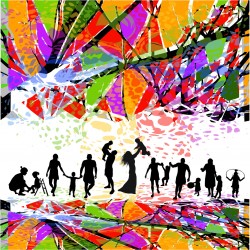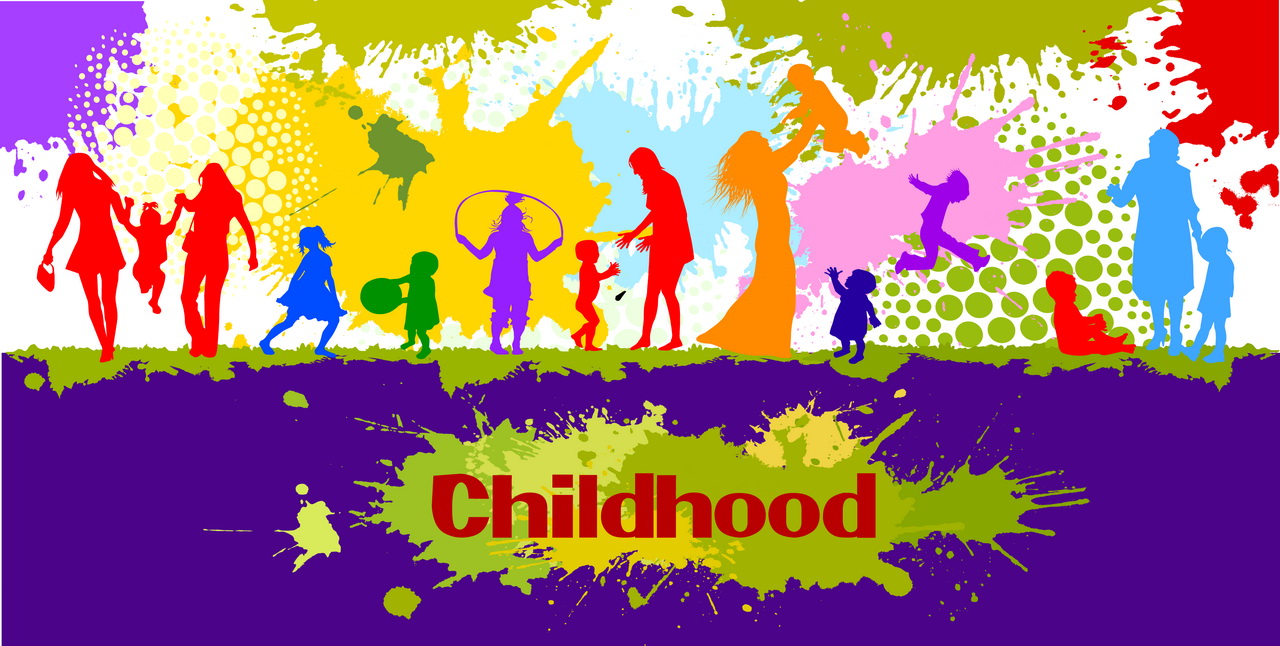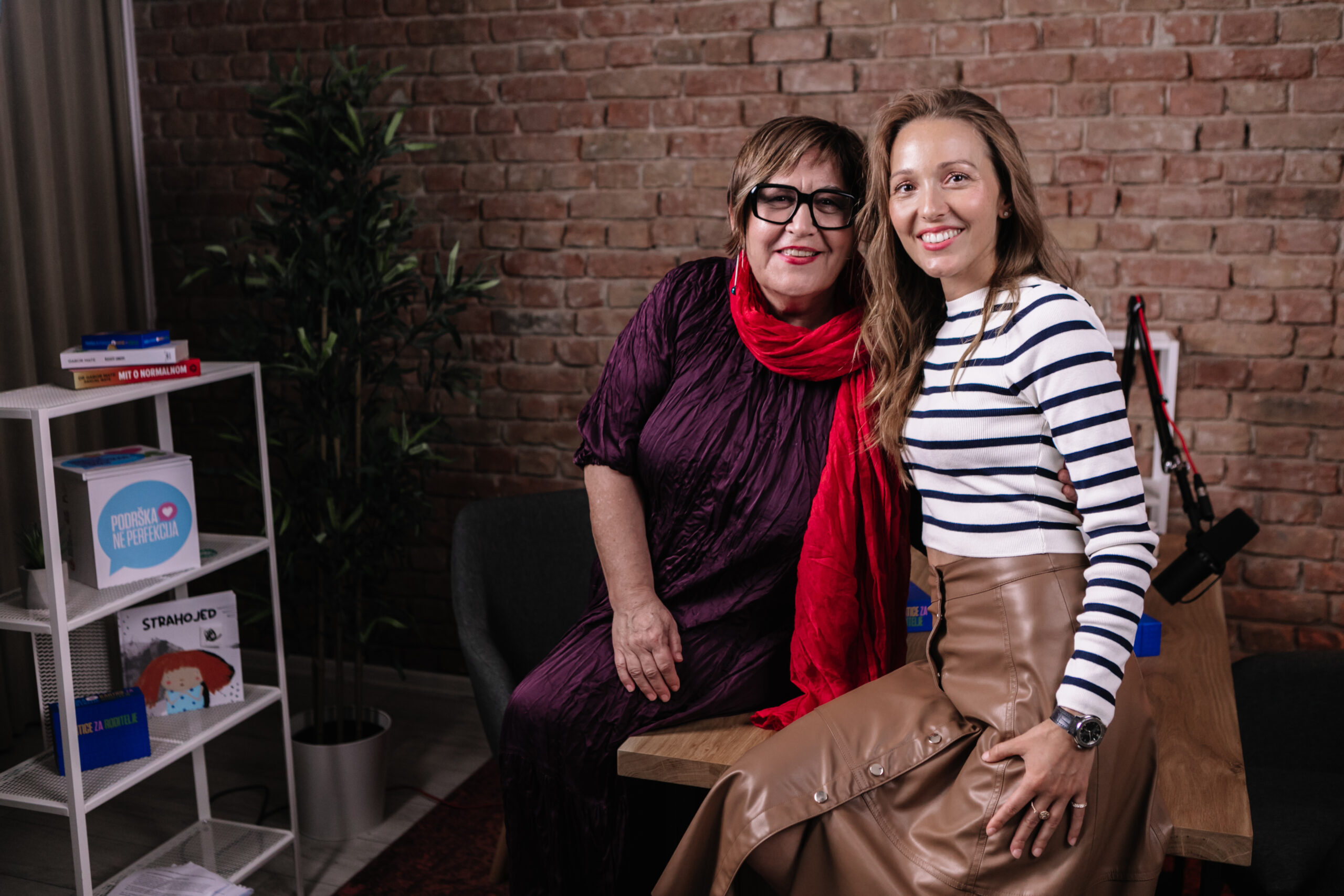How often do you go outside with your children, letting them roam around? How do they spend their childhood? Do you think kids should spend more time outside or is it too unsafe for them?
Summertime rhymes with playing outdoors, picnic in the park, or daytime at the beach. It also rhymes with countless surveys and articles about the „end of childhood“, and why children no longer play outside, but rather spend hours in front of the TV screens.
For example, a quarter of children spend less than half an hour outdoors each day, a 2012 survey from the National Trust has found. According to their research, more than half of seven to twelve year old children spend less than an hour a day outside, while almost nine in ten children have never taken part in outdoor activities such as climbing trees, exploring a cave, using a map or building a den.
This contrasts with the 1.000 parents and grandparents surveyed who spent an average of two hours and 34 minutes outside each day in their youth. More than half of grandparents (53 percent) spent more than three hours a day playing outside when they were aged seven to 12, compared to six percent of children today. Finally, the RSPB, the UK’s largest nature conservation charity, said that only one in five British children is „connected to nature.“
As a result, The National Trust launched its 50 things to do before you are 11-and-three-quarters campaign to „connect the cotton wool generation with nature“ by getting 200,000 children to play outside this summer. The campaign organises more than a thousand events and activities over the holidays to encourage families to get closer to nature.
„Outnumbered“ star and supporter of the campaign Hugh Dennis, told The Independent:
My most treasured childhood memories are of being in the outdoors so it’s a sad thought that kids today aren’t enjoying the experiences which we remember so fondly. There are so many simple delights to be had – and it doesn’t have to be a chore or ordeal to do either. Back gardens can be as much as a treasure trove for kids as the seaside or a local park.
Helen Meech, assistant director for outdoors and engagement at the National Trust, added:
The memories made as a child stay with you forever, and if outdoor places are part of these memories then hopefully children will grow up wanting to protect these special places for years to come.
The end of childhood?
 One question remains though. [tweet_quote]Why does the fact that children no longer play outside is a synonym of „the end of childhood?“[/tweet_quote] Do you agree with that? The reality is that our societies have created a climate of obsession with children’s safety and have regarded parents as irresponsible for allowing children to be independent outdoors. Some parents have been accused of gross negligence if not criminalised for letting their offspring live an independent life.
One question remains though. [tweet_quote]Why does the fact that children no longer play outside is a synonym of „the end of childhood?“[/tweet_quote] Do you agree with that? The reality is that our societies have created a climate of obsession with children’s safety and have regarded parents as irresponsible for allowing children to be independent outdoors. Some parents have been accused of gross negligence if not criminalised for letting their offspring live an independent life.
So we now have a contradiction between children’s freedom and children’s protection where letting them outdoors contradicts the social climate. All these reports and articles do not take that reality into account nor the loss of enthusiasm from parents for outdoor play. This is a shame as the best way to protect children is probably to nurture their independence, creativity and sense of adventure. Don’t you think that children need to experience and interact with the world around them in order to learn about themselves, to develop a sense of responsibility and strategies to deal with risks and unexpected events?
Does too much security mean less freedom?
Most importantly, being outside is simply good for your child’s mental and physical health. Exercising is key for their growth and as they are under increasing pressures to perform well academically, being in a park or by a pond could relieve them. It is also good for the planet: spending time in natural places will encourage children to grow into environmentally-friendly adults, who will cherish their childhood memories outside and will hopefully spend more time in nature.
On another note, I should add that today’s society has greatly evolved and children cannot be expected to act and play in the same ways as previous generations. It is important not to rely on technology and new gadgets but one cannot simply ignore these either. So it is a matter of finding a healthy balance and compromising with your kids.
[divider]
What other pros and cons do you see? Would you agree that too much security is less freedom?


















